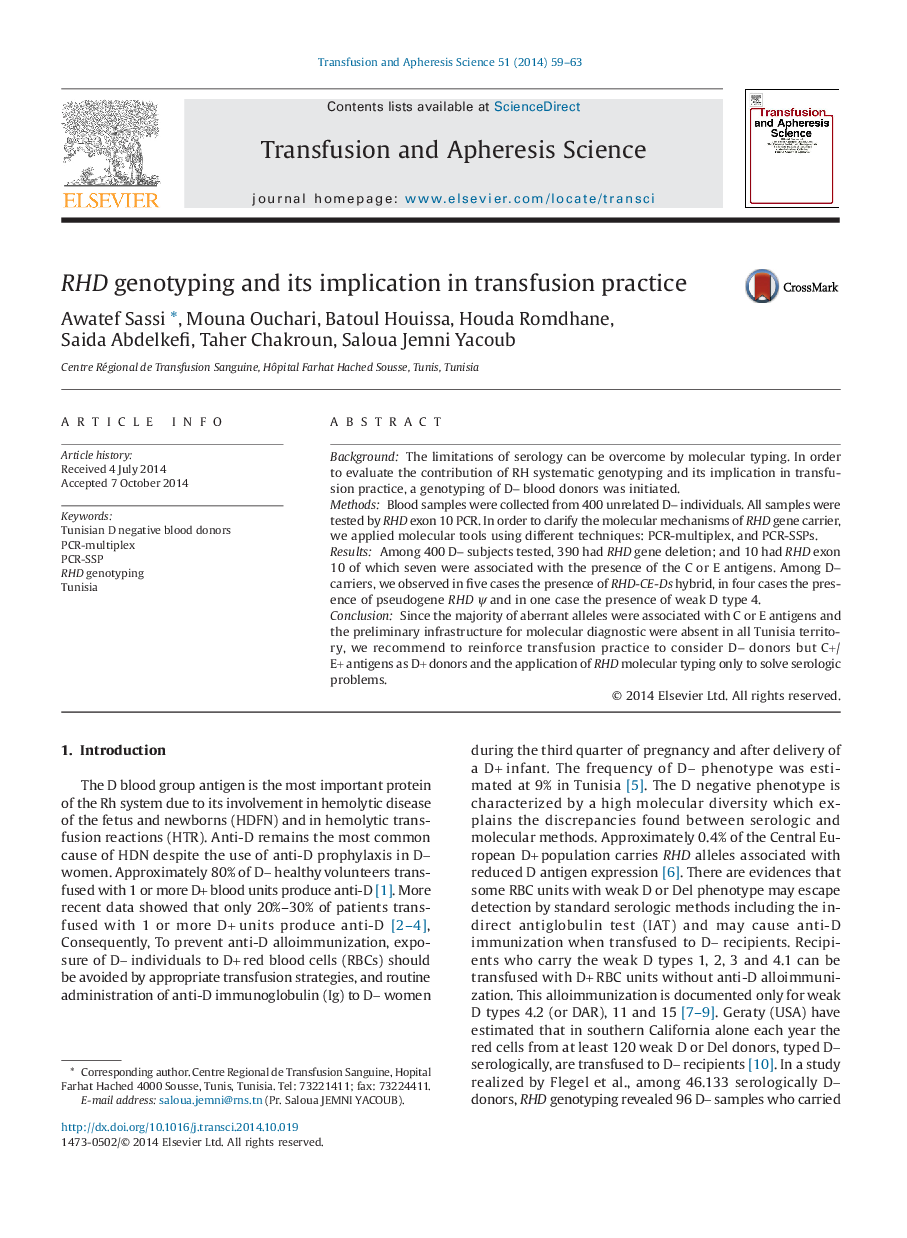| Article ID | Journal | Published Year | Pages | File Type |
|---|---|---|---|---|
| 3334977 | Transfusion and Apheresis Science | 2014 | 5 Pages |
BackgroundThe limitations of serology can be overcome by molecular typing. In order to evaluate the contribution of RH systematic genotyping and its implication in transfusion practice, a genotyping of D− blood donors was initiated.MethodsBlood samples were collected from 400 unrelated D− individuals. All samples were tested by RHD exon 10 PCR. In order to clarify the molecular mechanisms of RHD gene carrier, we applied molecular tools using different techniques: PCR-multiplex, and PCR-SSPs.ResultsAmong 400 D− subjects tested, 390 had RHD gene deletion; and 10 had RHD exon 10 of which seven were associated with the presence of the C or E antigens. Among D− carriers, we observed in five cases the presence of RHD-CE-Ds hybrid, in four cases the presence of pseudogene RHD ψ and in one case the presence of weak D type 4.ConclusionSince the majority of aberrant alleles were associated with C or E antigens and the preliminary infrastructure for molecular diagnostic were absent in all Tunisia territory, we recommend to reinforce transfusion practice to consider D− donors but C+/E+ antigens as D+ donors and the application of RHD molecular typing only to solve serologic problems.
